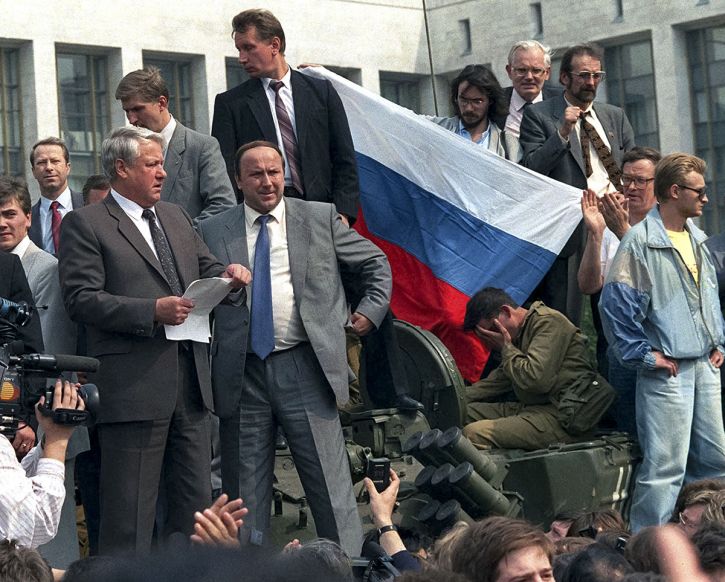
The Soviet Union's Fall: 25 Years Later - A Historical Reflection
Twenty-five years after the Soviet Union's collapse in 1991, its fall offers crucial lessons about how superpowers can rapidly decline. The events leading to this historic collapse unfolded through a combination of economic pressure, political reform, and internal division.

Russian flag at Soviet Union protest
The Soviet decline began in the 1980s when maintaining military competition with the United States strained their centrally controlled economy. In 1985, Mikhail Gorbachev introduced market-oriented reforms and increased civil liberties, inadvertently triggering nationalist uprisings and ethnic conflicts throughout the empire.
By 1988, Moscow's control was weakening. The Eastern Bloc began breaking away in 1990, starting with the Baltic states and Georgia. Russia held its first relatively free elections, bringing Boris Yeltsin to power. The final blow came in August 1991 when Communist hardliners attempted a coup against Gorbachev, which failed largely due to Yeltsin's opposition.
Eyewitness accounts from that period describe a population celebrating liberation from 70 years of Communist rule. The physical evidence of the regime's failure was visible in St. Petersburg's crumbling architecture and lengthy food lines. A system that had built one of the world's largest nuclear arsenals and dominated multiple client states across continents collapsed in just a few years.
This historical event holds particular relevance for today's sole superpower, the United States. Despite its current military and cultural dominance, several challenges threaten American influence:
- A rising, antagonistic China
- Growing global anti-American sentiment
- Declining will to promote democratic values
- Increasing internal polarization
The intense disagreements within American society over immigration, law enforcement, social issues, and religious freedom mirror Jesus's warning that "every kingdom divided against itself is brought to desolation" (Matthew 12:25). The Soviet Union's fall demonstrates how quickly a superpower can collapse when weakened by internal division, offering a sobering lesson for modern nations facing similar challenges.
Related Articles

1492: How Columbus' Journey Reshaped World History

